Research Article
Aim & Scope
For a period of nearly more than twenty years rapid changes and developments have been experienced in the world in the social, political, cultural and economic fields and those
changes and developments affected each field more or less.
One may define the emergence of new independent Turkish republics in the Central Asia and Caucasia as a result of disintegration of the Soviet Union (Azerbaijan, Turkmenistan,
Uzbekistan, Kazakhstan, Kyrgyzstan) in international area as the most important of the said changes and developments for both Turkish clans and communities and specialists of
Turcology.
The pleasure and satisfaction of accessing / attaining the inaccessible regions, those living in those regions and information and documents about them is well known by those who
pay effort for this purpose, who resist all sorts of difficulties and experience troubles. The elimination of the biggest obstacle before accessing / attaining of the Turkish states, clans and communities living in the Turkish Republics and different regions of the continent of Asia with one another and with their same races in the Republic of Turkey is one of the most significant events of the current century. Today more than twenty years has passed since this change, development and attaining. Although very good developments have been experienced within this period, it is unfortunately not much possible to say that the relations have reached up to the desired level.
Although disappointment was experienced among the Turkish states and communities in many fields, there have been many positive developments in the field of Turcology. As a
matter of fact, the experts of the subject have studied in the region which had been a dream for them in the past, have performed researches and inspections in the same project with their
colleagues, have reached many information, findings and documents related to Turkish language, history, art, culture civilization etc. within the last twenty years. The changes and developments experienced in the Turkish world and along with it in Turkey were followed closely by different instates and institutions concerned with Turcology; scientific meetings (councils, congresses, symposiums, banquets…) related to this issue were organized and the “information” obtained was published in the form of books, articles and manifestos. And sometimes despite having been realized with a huge labor and self sacrifice, the manifestos presented in the meetings, the articles written were not (could not) be published due to impossibility, insensitivity and “different reasons”.
The manifestos and articles are included in the most significant types of actual scientific texts. Failure to publish the manifestos and articles in time causes the opinions suggested /
claimed in the said manifestos and articles to lose their actuality and significance. In Turcology, as it is the case in certain scientific branches this is the issue about which scientists most
complain about.
For the purpose of making contribution to providing timely access to the studies performed in the field of Turcology in its general meaning and in the fields of Turkish, literature, culture and education in its particular meaning we decided to publish International Journal of TLCE (Turkish, Literature, Culture, Education). Certainly there are many valuable printed and electronic journals performing publication in those fields with self sacrifice and which make up models for us in many terms. The publication activities of those journals are worth all sorts of compliments.
International Journal of TLCE (Turkish, Literature, Culture, Education) started its publication life as a journal which is the stakeholder of the abovementioned journals for the
purpose of making new information, findings together with colorful visual materials to whom interested in and to allay their loads and facilitate their works.
https://docs.google.com/document/d/1oxYOq6DRYLXDRU8XK66EooH38bjZb5jF/edit?usp=sharing&ouid=106680171163063311303&rtpof=true&sd=trueSince it is targeted at to make the journal which shall be published in the fields of Turkish, Literature, Culture, Education in Turkish and in English quarterly (March - June - September - December) in electronic form (http://www.tekedergisi.com/) available for readers as printed when it is possible, the number of articles were restricted to 15-20.
Author Guidelines
The article which is to be sent to the journal must not be the one that was published in anywhere before or the one which is under publication process in another journal.
In addition to Turkish articles, English ones can also be published in the journal.
After it is examined in terms of its suitability for the publication (the articles which are seen as unsuitable for the publication are not included to the process), the article sent to the journal is sent to two referees. The article that receives the issuable report by the two referees after their assessments is published in the following issue. If one of the reports is positive and the other one is negative, the article is sent to a third referee. In such a case, whether the article is published or not is determined by the report of the third referee.
Articles are forwarded to the referees directly through the system (without any change on the file loaded by the writer). In order to provide the writer-referee secrecy, there must not be any information about the writer on the article. Therefore, there should not be any writer name/names neither in the article nor on the file.
You need to use the template file when submitting the article. TEMPLATE
The article which is to be sent to the magazine must certainly include Turkish and English abstracts, and keywords. In the title page of the article, Turkish heading, abstract, keywords, English heading, abstract and keywords must be included respectively. In all headings in the article, just the first letters of the words must be capital.
The article must be prepared as MS Word file. The format must be in this way:
Text size
Footnote size
Paragraph spacing
Indent
Top margin
Bottom margin
Right margin
Left margin
Line spacing
11 font
9 font
6 nk
1.25 cm
3 cm
3 cm
3 cm
3 cm
1,15
In the article, Times New Roman must be used as text font. However, during the writing if a special font is used as the necessity of some fields, these fonts must be sent together with the article.
In the abbreviations used in the article, TLS (Turkish Language Society) guide must be based on.
Citation in the Article
APA system is adobted for the citation in the articles sent to our journal. Therefore, the articles to be sent must be suitable for the citation system below:
In the books
Within the text: (Gemalmaz, 2010, s. 24)
In the bibliography: Gemalmaz, E. (2010). Türkçenin derin yapısı. Ankara: Belen Yayıncılık.
In the articles
Within the text: (Mert, 2003, s. 25)
In the bibliography: Mert, O. (2003). Türkçede hâl kategorisi ve öğretimi. Atatürk Üniversitesi Türkiyat Araştırmaları Enstitüsü Dergisi, 21, 25-32.
In the thesis
Within the text: (Durukan, 2011, s. 119)
In the bibliography: Durukan, E. (2011). İlköğretim 6. Sınıfta Bilgisayar Destekli Dil Bilgisi Öğretiminin Başarı ve Tutuma Etkisi. Yayımlanmamış Doktora Tezi, Erzurum: Atatürk Üniversitesi Eğitim Bilimleri Enstitüsü.
All of the sources used must be given under the heading “Works Cited”.
TABLE AND FORMS
Table numbers and explanations must be written on the table with the size of 10 font in this way:
Tablo 1: …………………..
And must be centered.
The texts must be 9 font, line spacing must be 1, and paragraph spacing must be 0 nk.
Table must be centered on the page.
Form numbers and explanations must be written down the form with the size of 10 font in this way:
Şekil 1: ………………………
And must be centered on the page.
The articles which are not suitable for these principles will certainly not be assessed.
The International TLCE journal has right to publish or unpublish the articles or to make revisions on them. The publication right of the texts which are sent belongs to the management of the journal. As to the legal responsibility of the text which is published in the journal, it belongs to the writer and the journal is not responsible for it. The texts published in the magazine cannot be copied without the written permission of the management of the journal and they cannot be published in somewhere else again (printed or on the net). The writer who sends an article to the journal is assumed to accept these principles.
SENDING OF THE ARTICLES
The articles which are prepared by considering the principles above must be sent through the ARTICLE FOLLOW-UP SYSTEM.
In order to send an article through the “ARTICLE FOLLOW-UP SYSTEM”:
*One must enter the webpage with the user name (the e-mail address saved in the system) and the password after s/he becomes a member of the article follow-up system.
*One must fill in the related blanks by opening the section “send the article”.
*One must load the article on the system as an MS file.
Paid services are used for the electronic publication process (Server, DOI, etc.) of the Journal, which has been published as principled and qualified since 2012. For this reason, a submission fee (700 TL) is requested to initiate the referee process of the submitted article. After the payment is made, the information that the article has been processed is sent to the author/authors by e-mail. In case of rejection of the article at the end of the referee process, this fee will not be refunded.
OPEN ACCESS SYSTEM
This is an open access journal which means that all content is freely available without charge to the user or his/her institution. Users are allowed to read, download, copy, search, or link to the full texts of the articles in this journal without asking prior permission from the publisher or the author. This is in accordance with the BOAI definition of open access.
The manuscripts sent to journal are controled with “IThenticate” screening program.
Ethical Principles and Publication Policy
PUBLICATION ETHICS AND PUBLICATION MALPRACTICE STATEMENT
Publication Ethics Statement: All parties in the publication process (authors, editorial board and referees) will make decisions in accordance with the ethical standards. In order to guarantee high ethical standards, The International Journal of Turkish Literature, Culture and Education has acknowledged international standards for all parties. The International Journal of Turkish Literature, Culture and Education expects all parties to comply with these standards. The best publication ethics standards are supported and all precautions against publication malpractices are taken. The International Journal of Turkish Literature, Culture and Education as the publisher takes the tutorship task seriously in all phases of publishing and acknowledges ethical and other responsibilities.
International Standards for the Authors
The International Journal of Turkish Literature, Culture and Education does not request all authors of an article a signed letter of application, and does not conduct mandatory practices on the authors. All authors applying to The International Journal of Turkish Literature, Culture and Education are expected to comply voluntarily with the international standards (the ethical principles determined by the Committee on the Publication Ethics (COPE), https://publicationethics.org/).
The authors will approve that the articles are their genuine works. Plagiarism, fabrication, falsification, dual publication, data manipulation are not allowed.
The authors will not inflict physical or legal harm to the participants of the study and they will not abuse the participants psychologically. In addition, the authors will provide the right to privacy and anonymity.
The authors will indicate the individuals or institutions (sponsors) supporting the study.
The authors will approve that the article has not been published elsewhere before, and is not being evaluated elsewhere for publishing at the moment.
The authors will ensure the list of references they used in their article.
If an author finds out that there is an important error or mistake in their published work, they will immediately inform the journal’s editor or published and will cooperate with the editor to withdraw or correct the article.
The authors will inform The International Journal of Turkish Literature, Culture and Education about any conflict of interest.
International Standards for the Editorial Board
The editors and the members of the Editorial Board will comply with the international standards for the Editorial Board. The editor and the Editorial Board of The International Journal of Turkish Literature, Culture and Education are expected to comply voluntarily with the international standards (the ethical principles determined by the Committee on the Publication Ethics (COPE), https://publicationethics.org/).
The editorial board will keep all the data about the submitted papers confidential.
The editorial board is responsible for taking the publishing decisions for all papers submitted.
The editorial board will make an effort to meet the requirements of both the readers and the authors.
The editorial board will make an effort to increase the quality of The International Journal of Turkish Literature, Culture and Education.
The editorial board will attach utmost importance to quality and authenticity.
The editorial board will be ready to publish revisions, statements, withdrawals and apologies when needed.
International Standards for Referees
The referees are will comply with the international standards for refereeing after accepting the invitation. The referees of The International Journal of Turkish Literature, Culture and Education are expected to to comply voluntarily with the international standards (the ethical principles determined by the Committee on the Publication Ethics (COPE), https://publicationethics.org/).
The referees will keep the information about the papers confidential.
The referees will present all the information that would be a reason for rejecting an article to the attention of the editorial board.
The referees will evaluate the articles with regard to being scientific.
The referees will evaluate the articles only with regard to their authenticity, significance and compliance with the scope of the journal.
The referees are independent of the authors, i.e. not affiliated with the same institution.
The referees will inform The International Journal of Turkish Literature, Culture and Education about any conflict of interest.
All articles are subjected to the plagiarism check using the iThenticate software by The International Journal of Turkish Literature, Culture and Education. The authors will avoid all kinds of plagiarism including self-plagiarism. The articles with a similarity report containing results exceeding 20% similarity will not be published by The International Journal of Turkish Literature, Culture and Education. The International Journal of Turkish Literature, Culture and Education will be authentic, and not be published before or submitted for publication elsewhere.
The editor will control the articles for deciding the publication process and determining misconducts. If a paper is defined as misconducting, the author will be responsible for the withdrawal or correction of that paper in line with the feedback provided by the editor and the referees.
The International Journal of Turkish Literature, Culture and Education is a member of CrossCheck, an initiative, which helps the editors to confirm the authenticity of the submitted papers.
Informed Consent Policy
Author(s) should comply with the following conditions in order to meet ethical and legal standards for work with human subjects:
Participants in your research should be informed that you will be conducting research in which they will be the participants or that you would like to write about them for publication.
Participants in your research should be informed that participation is voluntary, that there is no penalty for refusing to participate, and that the participants may withdraw at any time without penalty.
Participants in your research should be informed that the purpose of your research and the procedure you will follow in the research.
Participants in your research should be informed that contact information that they can reach you for answers to questions regarding the research.
Participants in your research should be informed that any foreseeable risks and discomforts involved in agreeing to cooperate.
Participants in your research should be informed that any possible direct benefits of participating (e.g., receiving a copy of the article or chapter).
Participants in your research should be informed if and how their confidentiality will be protected.
SENDING OF THE ARTICLES
The articles which are prepared by considering the principles above must be sent through the ARTICLE FOLLOW-UP SYSTEM.
In order to send an article through the “ARTICLE FOLLOW-UP SYSTEM”:
*One must enter the webpage with the user name (the e-mail address saved in the system) and the password after s/he becomes a member of the article follow-up system.
*One must fill in the related blanks by opening the section “send the article”.
*One must load the article on the system as an MS file.
WAGE POLICY
Paid services are used for the electronic publication process (Server, DOI, etc.) of the Journal, which has been published as principled and qualified since 2012. For this reason, a submission fee (700 TL) is requested to initiate the referee process of the submitted article. After the payment is made, the information that the article has been processed is sent to the author/authors by e-mail. In case of rejection of the article at the end of the referee process, this fee will not be refunded.
OPEN ACCESS SYSTEM
This is an open access journal which means that all content is freely available without charge to the user or his/her institution. Users are allowed to read, download, copy, search, or link to the full texts of the articles in this journal without asking prior permission from the publisher or the author. This is in accordance with the BOAI definition of open access.
The manuscripts sent to journal are controled with “IThenticate” screening program.
Note: The authors cannot retain the copyrights and full publishing rights without the permission of journal ediors' committee. This is guaranteed with the copyright aggreement form of journal, which authors have to accept that their copyrights are transferred to the journal. You can see the journal's copyright transfer aggreement form İf you click link.
Price Policy
Paid services are used for the electronic publication process (Server: Our web address outside of DergiPark) of the Journal, which has been published as principled and qualified since 2012. For this reason, a submission fee (1000 TL) is requested to initiate the referee process of the submitted article. After the payment is made, the information that the article has been processed is sent to the author/authors by e-mail. In case of rejection of the article at the end of the referee process, this fee will not be refunded.
Indexes
Journal Boards
İmtiyaz Sahibi, Yazı İşleri Müdürü ve Editörü / License Owner, Editorial Manager and Editor
Editor Assistant
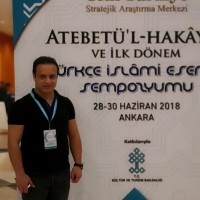
Field Editors


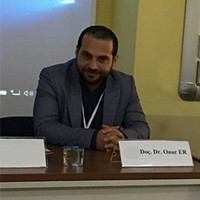
Editorial Board
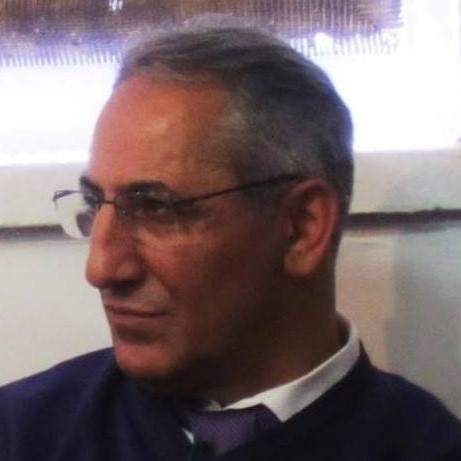

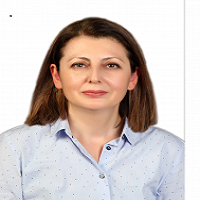
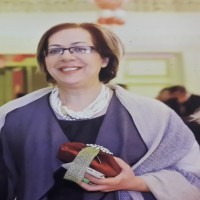
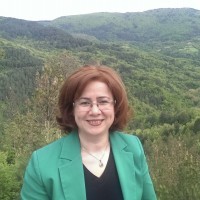
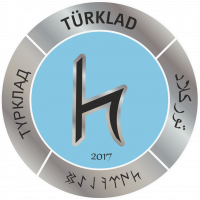



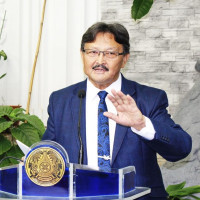
Board of Editorial Advisor
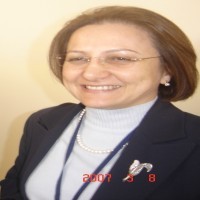
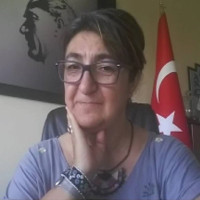

Responsible for Foreign Language
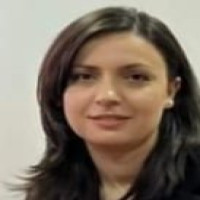
Responsible for Revision











